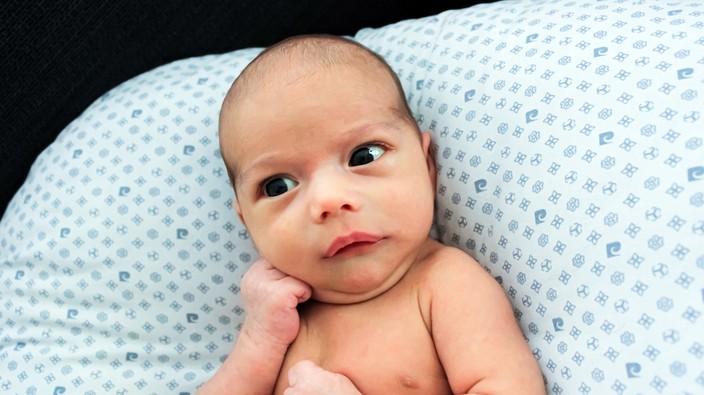are we born with a sense of morality? some researchers think so
a new study found that babies as young as eight-months-old can identify and act on moral transgressions.

a new study suggests that people may be born with a sense of morality. getty
babies as young as eight months old are capable of making and acting on moral judgments, according to a new study that sheds light on human morality. in a series of experiments, researchers from osaka university in japan found that even babies too young to speak “punished” morally dubious behaviour using the few communication tools they have.
“morality is an important, but mysterious, part of what makes us human,” said yasuhiro kanakogi, the study’s lead author. “we wanted to know whether third-party punishment of antisocial others is present at a very young age, because this would help to signal whether morality is learned.”
three groups of 12 baby boys and 12 baby girls, all full-term eight-month-olds, were shown variations of simple computer animations. the animations all involved a personified square (a simple geometric form with eyes) that was “attacked” by another form: sometimes a rock fell from the sky and hit the square, other times the attack came from another square. each one had a clear victim and a clear aggressor.
an important component of the experiment: the square that was “punished” was that the one the babies were looking at. researchers observed the babies to see where their gaze fell after the act of aggression.
advertisement
“the results were surprising,” kanakogi said. “we found that preverbal infants chose to punish the antisocial aggressor by increasing their gaze towards the aggressor.” the scientists also performed several control experiments to make sure that the babies understood both their own role in the “punishment,” and the fact that the aggressor was choosing to attack.
researchers found that “a disposition for third-party punishment of antisocial others emerges in early infancy,” they wrote in the study, published in the journal nature human behavior. the results “emphasize the importance of third-party punishment for human cooperation.”
previous studies have found that preverbal babies can even identify victims, aggressors and neutral parties when they witness violence, and that they regularly express sympathy when they see someone hurt. they also seem to expect injustice to be punished, whether it’s themselves or someone else who has done something wrong.
the study suggests that people may be born with a sense of morality: “this behavioural tendency may be a human trait acquired over the course of evolution,” the study says. kanakogi elaborated: “specifically, the punishment of antisocial behaviour may have evolved as an important element of human cooperation.”
maija kappler is a reporter and editor at healthing. you can reach her at mkappler@postmedia.com
thank you for your support. if you liked this story, please send it to a friend. every share counts.
 2 minute read
2 minute read





